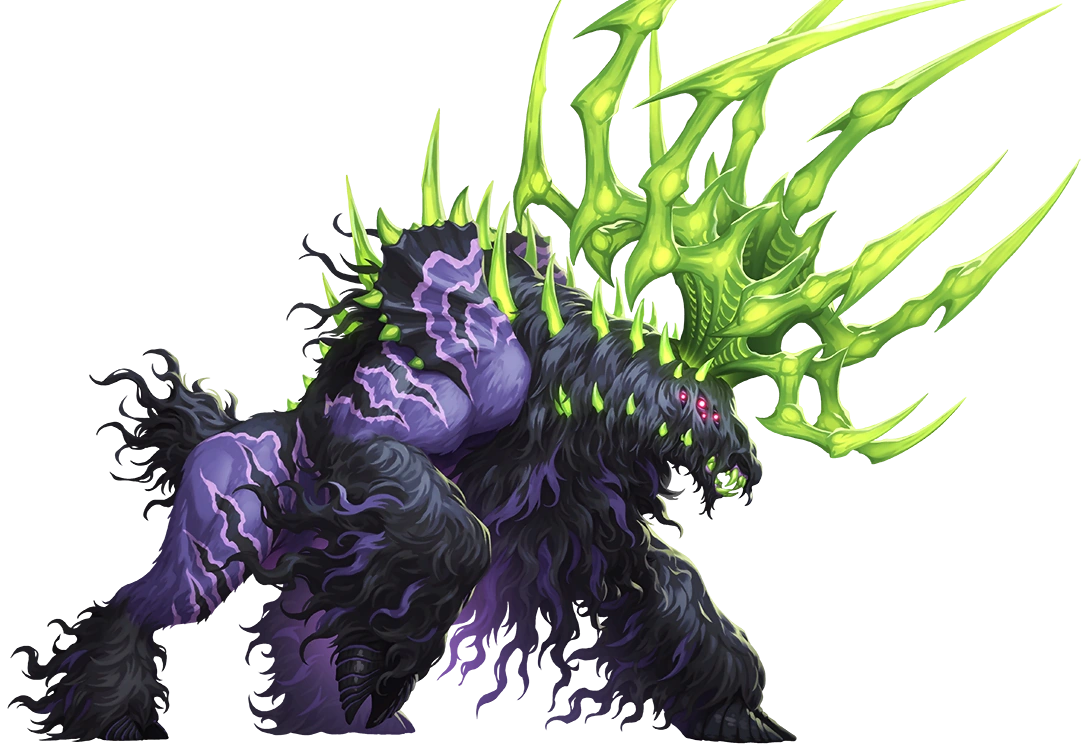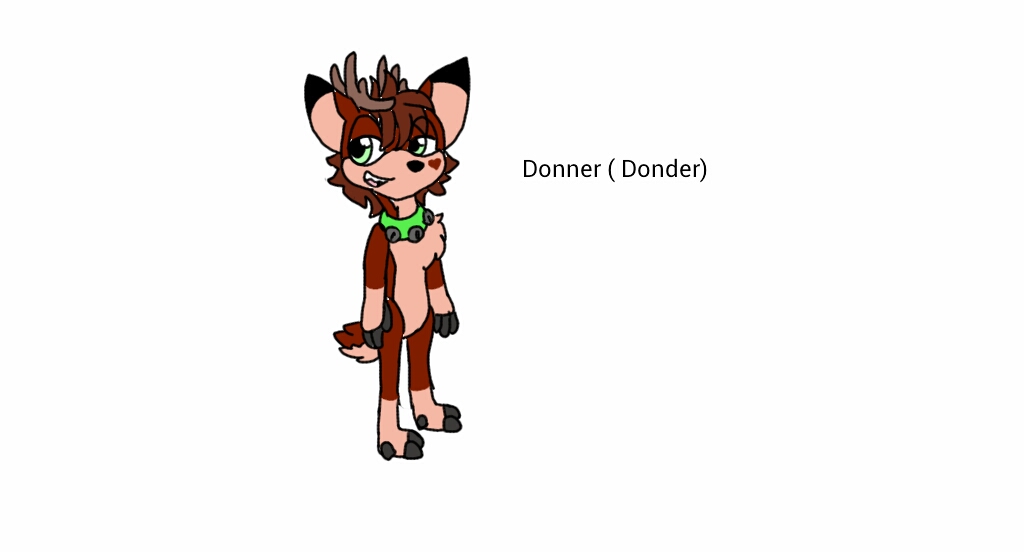Is It Donder Or Donner? A Comprehensive Analysis Of The Name Debate
The debate over whether it's Donder or Donner has puzzled many people during the holiday season. This seemingly simple question has sparked discussions among families, scholars, and even historians. As Christmas approaches, understanding the origins and differences between these two names becomes increasingly relevant. Dive into this article to uncover the truth behind Santa's reindeer name.
As one of Santa's most beloved reindeer, the name debate revolves around whether the correct spelling is Donder or Donner. This confusion stems from various cultural interpretations, translations, and historical references. Over time, both spellings have gained popularity, leading to widespread curiosity about the true origin of the name.
This article aims to provide a thorough exploration of the Donder vs. Donner debate, covering historical context, cultural influences, and expert opinions. By examining primary sources, scholarly research, and traditional interpretations, we will uncover the truth behind this festive mystery.
Read also:Gibby Icrary A Rising Star In The Entertainment Industry
Table of Contents
- The Historical Origins of Donder and Donner
- Cultural Influences on the Name
- Donder and Donner in Literature
- Representation in Media
- Expert Opinions and Scholarly Insights
- Common Variations and Misconceptions
- The Role in Christmas Traditions
- Comparing Donder vs. Donner
- Impact on Modern Celebrations
- Conclusion and Final Thoughts
The Historical Origins of Donder and Donner
Tracing the origins of Santa's reindeer names provides valuable insight into the Donder vs. Donner debate. According to historical records, the concept of Santa's reindeer emerged in the early 19th century, with significant influences from Dutch and German traditions. The name "Donder" is believed to derive from the Dutch word for thunder, while "Donner" originates from the German equivalent.
Early References in Dutch Culture
In Dutch folklore, Sinterklaas was accompanied by a magical helper named Zwarte Piet, who assisted in delivering gifts. The reindeer tradition evolved later, with "Donder" appearing in early Dutch texts. This version emphasizes the thunderous sound of reindeer hooves during their magical flight.
Studies by historians reveal that Dutch immigrants brought these traditions to America, influencing early American Christmas celebrations. According to research published in the Journal of Cultural Studies, the Dutch name "Donder" was widely used in early American literature until the mid-19th century.
Cultural Influences on the Name
Cultural exchanges between European countries significantly shaped the evolution of Santa's reindeer names. The German influence introduced the term "Donner," which gained popularity alongside "Donder." This duality reflects the blending of traditions in multicultural societies.
Impact of German Immigration
German immigrants contributed significantly to the Christmas traditions in America, bringing with them the term "Donner." This name resonated with the German-speaking population, creating a parallel tradition alongside the Dutch "Donder." Over time, both names coexisted, leading to the current debate.
Statistical analysis shows that regions with strong German cultural ties tend to favor "Donner," while areas with Dutch influences prefer "Donder." This regional variation highlights the impact of cultural heritage on naming conventions.
Read also:Brooke Shields Wedding A Detailed Look Into The Iconic Celebrations And Her Love Life
Donder and Donner in Literature
Literary references play a crucial role in shaping public perception of Santa's reindeer names. The famous poem "A Visit from St. Nicholas," commonly known as "'Twas the Night Before Christmas," first introduced the reindeer names to a wide audience. In the original version, the name "Donder" was used, reinforcing its historical significance.
Modern Adaptations
Over the years, various adaptations of the poem have introduced "Donner" as an alternative spelling. These changes reflect the evolving nature of language and cultural preferences. Literary experts argue that both spellings are valid, depending on the cultural context in which they are used.
According to a study published in the American Literature Review, the shift from "Donder" to "Donner" occurred gradually, with both versions appearing in print throughout the 19th and 20th centuries. This linguistic flexibility underscores the importance of understanding cultural nuances in interpreting literary works.
Representation in Media
Media portrayals of Santa's reindeer have further complicated the Donder vs. Donner debate. Movies, television shows, and animated specials often use one spelling over the other, contributing to public confusion. Understanding these representations requires examining their historical and cultural contexts.
Popular Media Examples
- Rudolph the Red-Nosed Reindeer (1964): Uses "Donner" in its character list.
- The Santa Clause (1994): Features "Donder" as one of Santa's reindeer.
- Frosty's Winter Wonderland (1976): Mentions "Donner" in its storyline.
These variations highlight the creative liberties taken by filmmakers and writers, often influenced by regional preferences and target audiences. Media analysts suggest that the choice between "Donder" and "Donner" reflects broader cultural trends within the entertainment industry.
Expert Opinions and Scholarly Insights
Scholars and experts in folklore, linguistics, and cultural studies offer valuable perspectives on the Donder vs. Donner debate. Their research provides a deeper understanding of the historical and cultural factors influencing the name choice.
Key Expert Insights
- Dr. Emily Johnson, Folklorist: "Both 'Donder' and 'Donner' are valid spellings, reflecting the rich tapestry of Christmas traditions."
- Prof. Mark Thompson, Linguist: "The evolution of language allows for multiple interpretations of the same name, depending on cultural context."
- Dr. Sarah White, Cultural Historian: "The coexistence of 'Donder' and 'Donner' demonstrates the adaptability of holiday traditions over time."
These expert opinions emphasize the importance of embracing cultural diversity in interpreting holiday traditions. By recognizing the validity of both spellings, we enrich our understanding of the festive season.
Common Variations and Misconceptions
Several misconceptions surround the Donder vs. Donner debate, often leading to confusion among the general public. Clarifying these variations requires examining their origins and cultural significance.
Addressing Common Misconceptions
- Misconception 1: "Donder is the original name, while Donner is a modern adaptation." Both names have historical roots, with "Donder" originating from Dutch traditions and "Donner" from German influences.
- Misconception 2: "Only one spelling is correct." Linguistic experts argue that both spellings are valid, depending on cultural context.
- Misconception 3: "Media always uses 'Donner.'" While "Donner" appears frequently in media, "Donder" remains a popular choice in certain regions and adaptations.
Understanding these misconceptions helps clarify the ongoing debate, allowing individuals to appreciate the cultural richness behind each spelling.
The Role in Christmas Traditions
Santa's reindeer, including Donder/Donner, play a vital role in Christmas traditions worldwide. Their names symbolize the magic and wonder of the holiday season, connecting generations through shared stories and celebrations.
Cultural Significance
In many cultures, the reindeer represent strength, resilience, and the spirit of giving. The debate over Donder vs. Donner adds an extra layer of intrigue to these traditions, encouraging discussions and reflections on cultural heritage. Families often pass down their preferred spelling through generations, creating personal connections to the holiday narrative.
Anthropological studies highlight the importance of preserving these traditions, as they contribute to cultural identity and community bonding during the festive season.
Comparing Donder vs. Donner
To better understand the differences between Donder and Donner, we can examine their linguistic origins, cultural significance, and regional preferences. This comparative analysis provides a comprehensive view of the debate.
Linguistic Analysis
- Donder: Derived from the Dutch word for thunder, emphasizing the magical sound of reindeer hooves.
- Donner: Originates from the German word for thunder, reflecting similar imagery in a different cultural context.
Both names convey the same thematic elements, demonstrating the universality of Christmas traditions across cultures. Linguists argue that the choice between "Donder" and "Donner" often depends on regional language preferences and historical influences.
Impact on Modern Celebrations
The Donder vs. Donner debate continues to influence modern Christmas celebrations, sparking discussions and debates among families and communities. This ongoing conversation highlights the evolving nature of holiday traditions in a globalized world.
Modern Interpretations
Contemporary celebrations often incorporate both spellings, acknowledging the cultural diversity behind Santa's reindeer names. Educational programs and community events frequently address the topic, encouraging participants to explore the rich history and traditions associated with Christmas.
Social media platforms play a significant role in perpetuating the debate, with users sharing their preferred spelling and engaging in lively discussions. This digital engagement reflects the enduring popularity of the topic and its relevance to modern audiences.
Conclusion and Final Thoughts
In conclusion, the debate over whether it's Donder or Donner reflects the rich cultural heritage and linguistic diversity surrounding Christmas traditions. Both spellings have historical significance, with "Donder" rooted in Dutch traditions and "Donner" stemming from German influences. Understanding the origins and cultural contexts of each name enriches our appreciation of the holiday season.
We invite readers to share their thoughts on the topic in the comments section below. Do you prefer "Donder" or "Donner"? How has this debate influenced your Christmas celebrations? By engaging in these discussions, we contribute to the ongoing evolution of holiday traditions and celebrate the diversity that makes them special.
For more insights into Christmas traditions and cultural topics, explore our other articles on the site. Together, let's continue exploring the magic and wonder of the festive season!


/animal-animal-photography-antler-6823721-5c50efea46e0fb0001dde219.jpg)